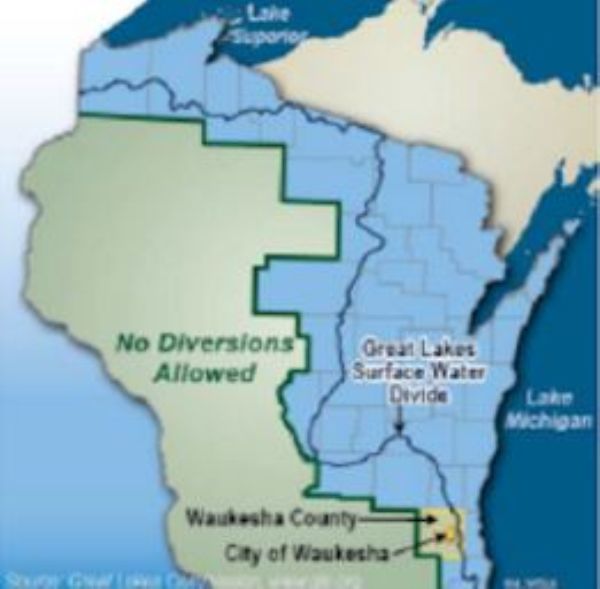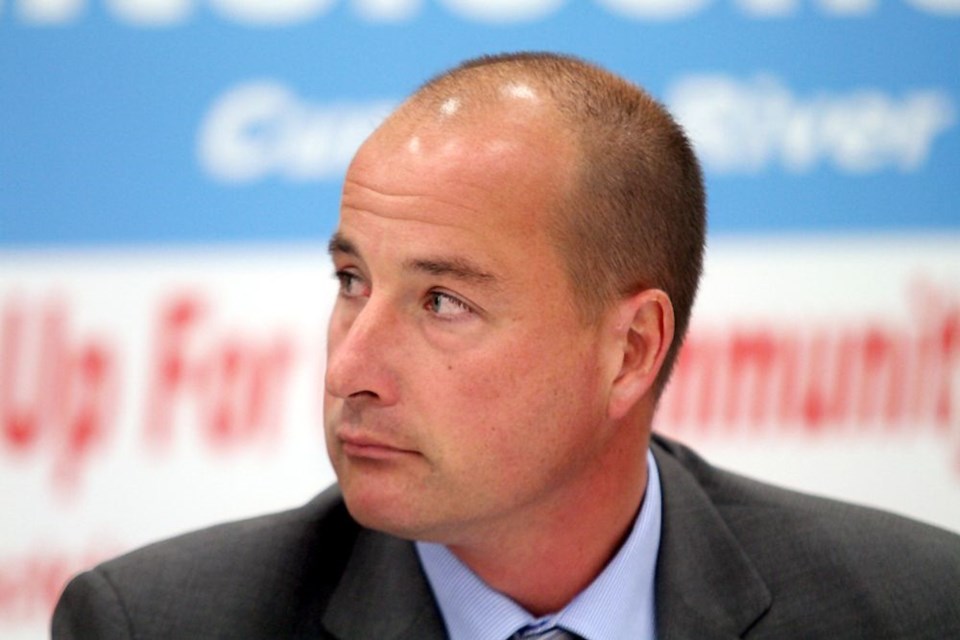THUNDER BAY -- A Wisconsin city’s ambition to divert millions of litres of water every day from the Great Lakes Basin took a step forward this week but the project’s local opposition is unmoved.
On Wednesday, Ontario and Quebec voted with seven of the eight U.S. states bordering the Great Lakes to accept amendments to Waukesha’s water diversion application before the Great Lakes-St. Lawrence River Water Resources Regional Body. Minnesota voted to abstain.
The revised plan would see 31.8 million litres per day diverted from Lake Michigan to Waukesha’s municipal water supply in lieu of its original bid to divert more than 38 million litres daily.
The City of Waukesha’s drinking water is contaminated with radium concentrations in excess of Wisconsin’s Safe Drinking Water Act. The city falls outside of the Great Lakes Basin and diverting water beyond that boundary would violate a 2006 international agreement that manages water extraction from the Great Lakes.
Waukesha representatives successfully argued its situation warrants an exemption to the agreement, as eastward land in Waukesha County falls within the basin.
A final vote is scheduled for June 21 before the Compact Council comprised of the eight states bordering the Great Lakes. Their unanimous consent is required to proceed.
Thunder Bay City Council, the Lakehead Region Conservation Authority and the city’s EarthCare Committee all passed resolutions condemning Waukesha’s original request.
Coun. Andrew Foulds, who also chairs the EarthCare Committee, is undeterred in his opposition despite the project's proposed 16 per cent reduction in scope.
“It’s still substantial and the enormity of that diversion is not acceptable,” Foulds said.
Foulds called the proposed exemption a “dangerous” shift, adding he feels the Waukesha diversion could open doors to bulk water transfers and water privatization.
“This could set a precedent that can have a profound effect on the Great Lakes. That’s very concerning for me,” Foulds said.
“If we can start diverting to one municipality outside, what’s to stopping other municipalities outside the base farther away from piping water? I see this as a dangerous slope toward bulk water transfer and exporting water as a commodity. I believe water is a human right.”
Minister of Natural Resources and Forestry Bill Mauro, whose department is managing the file for the province, was unavailable for comment on Thursday and Friday.

